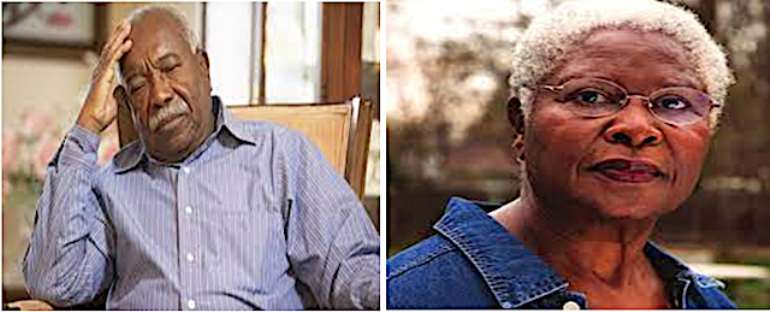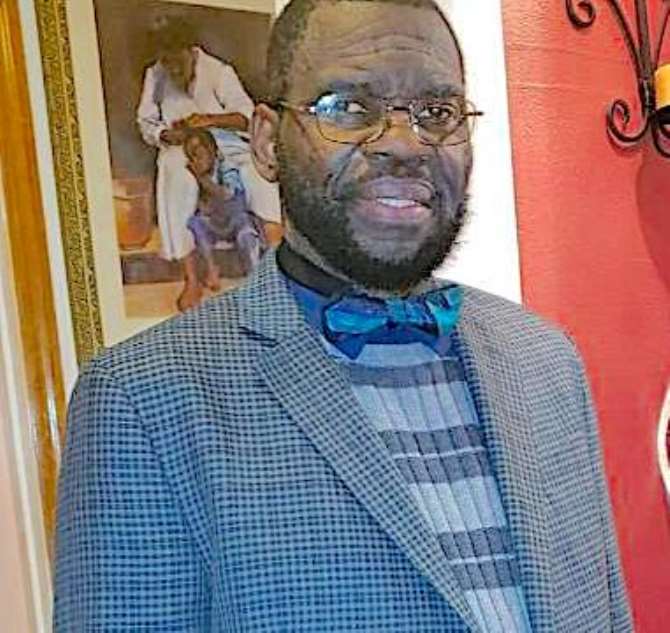Nigerian Elderly Populations Need Aids Under Growing Insecurity Stress

Insecurity challenges in Nigeria has assumed a formidable dimension across the regions in form of violent conflict/kidnapping, sexual/criminal attacks, food/money hardship and various forms of exploitation.
In comparison to youths and less aged persons, older persons, meaning those sixty-five years old and above generally find themselves with numerous physical, psychological, social, and environmental vulnerabilities.
With elders having more susceptibilities to risk of various illnesses and decrease in all forms of immune response, is the ongoing negative impact of Covid-19 pandemic.
Psychologically, because of the social distance strategy many of our elderly persons who are mostly at homes have become more lonely, isolated, and vulnerable to further fear, anxiety, worry and despondency.
In African traditions, it is not uncommon for families to care for elderly relatives at their homes or for them to move in with their working adult children. Assisted living and nursing home care are still a relatively new phenomenon in the African environments.
Like most people, adult children, in addition to been highly impacted by the effects of current national insecurities, COVID-19 have resulted to job and income loss to some, leading to more financial hardship for dependents like the elderly.
For many retirees and pensioners delayed, unstable and low money flow add more to their problems. With frustrations everywhere including their adult children and other family members some elderlies are silently, directly, or indirectly going through and experiencing emotional abuse, neglect, begging, displacement, homelessness, and abandonment.
Many are victims of physical/sexual abuse, and experiencing unattended medical/mental health needs, insufficient hygiene, suicide, and faster deaths.
In times like these, urgent local government programs need to be instituted to provide home based support services, develop, and provide professional visitation aids that will make elders to stop thinking negatively about themselves.
There is need for government programs to help set up transportation arrangements to convey elders to the hospital rather than putting them in wheelbarrow, motorcycles, or other uncomfortable settings.
Public related programs need to be set up to see that their and dignity are human rights are intact to prevent any form of abuse.
Even when many elderly people are living with families who generally bear the burden of taking care of them, programs of caregivers who are to spend hours assisting aged persons or disabled elders with daily tasks, cooking meals, taking them to appointments, and ensuring their safety and well-being, and offering companionship.
Nigeria, like many African countries should continue to work towards functional policy on the care and welfare of elderly people and persons with physical and emotional disabilities.
There is need for full blown and active national and local government related programs, and services for elders that should include social security disability insurance, social, recreational, and psychological support services, vocational rehabilitation services, medical and prescription drugs aids, and legal assistance. There is need for adaptations services to include the provision general safety measures, lightening, vision and hearing impairments aids, and other protection related policies.
Old age is a delicate time of life, and the federal, State, and local governments could make it more manageable. Elderly persons need care and comfort to lead a healthy life without too many concerns and anxiety, and above all they desire a life with fine health, dignity, security, financial adequacy and ultimately a peaceful death.
Prof. John Egbeazien Oshodi, an American based Police/Prison Scientist and Forensic/Clinical/Legal Psychologist. A government Consultant on matters of forensic-clinical adult/child psychological services in the USA; Chief Educator and Clinician at the Transatlantic Enrichment and Refresher Institute, an Online Lifelong Center for Personal, Professional and Career Development. The Founder of the Dr. John Egbeazien Oshodi Foundation, Center for Psychological Health and Behavioral Change in African settings especially. In 2011, he introduced the State-of-the-Art Forensic Psychology into Nigeria through N.U.C and the Nasarawa State University where he served in the Department of Psychology as an Associate Professor. The Development Professor and International Liaison Consultant at the African University of Benin, and a Virtual Faculty at the ISCOM University, Benin of Republic. Author of over 36 academic publications/creations, at least 200 public opinion writeups on African issues, and various books.
Prof. Oshodi was born in Uromi, Edo State, Nigeria to parents with almost 40 years of police/corrections service, respectively. Periodically visits home for scholastic and humanitarian works. [email protected]

